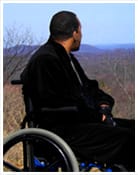Going into surgery is frightening even for the most stoic person. There’s a risk of many things going wrong, even in a controlled environment with professionals who have years of experience.
Anesthesia is one thing that has to be just right to prevent injuries. Anesthesiologists train for years to understand medications and how they affect patients. Making any kind of mistake could be life-threatening for a patient.
There are steps that people should take to avoid making mistakes when giving anesthetics. With 251,000 people dying from medical errors in 2013, it’s extremely important for anesthesiologists to double check their patients’ needs.
Dosing errors are one common cause of anesthesia errors. This is why it’s necessary for the medical providers to find out your true weight along with any allergies that you have. Using this information is important to getting you the right mixture of medications.
Why do medical professionals make mistakes?
The most common causes are because of being unfamiliar with medications or equipment, being inexperienced or being inattentive. Rushing or being careless are also possible causes of mistakes in a surgical environment.
What happens when anesthetics go wrong?
It depends on what specific mixtures occur or how the drugs are administered. Not administering enough medication may leave a patient in pain or unable to speak out to inform the surgical team that he or she is aware. Too much medication could lead to an overdose and significant risk of serious injury or death.
If an anesthetic error occurs, it’s serious. As a victim, you should look into your legal rights.

